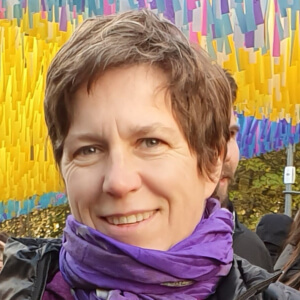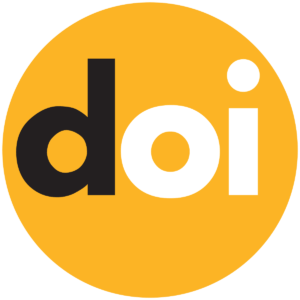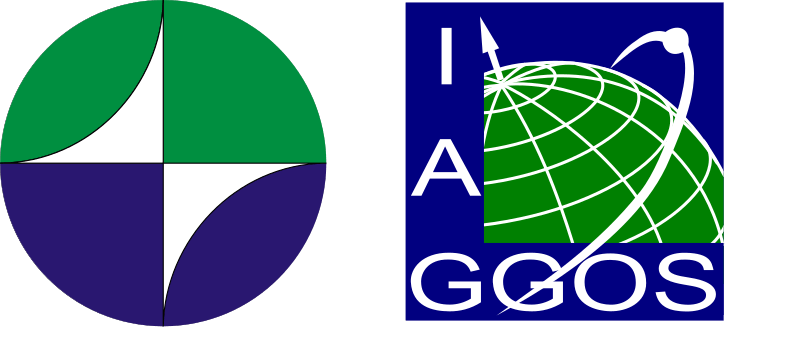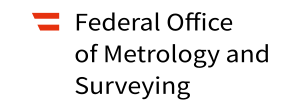Committee on
Digital Object Identifiers (DOIs)
for Geodetic Data Sets
Motivation
Data publications with digital object identifiers (DOI) are key supporting elements for FAIR (Findable, Accessible, Interoperable, and Reusable) sharing data. Originally developed with the purpose of providing permanent access to (static) datasets described in scholarly literature, DOI today are more and more assigned to dynamic data. These DOIs are providing a citable and traceable reference of various types of sources (data, software, samples, equipment) and means of rewarding the originators and institutions. As a result of international groups, like the Coalition on Publishing Data in the Earth, Space and Environmental Sciences (COPDESS) and the Enabling FAIR Data project, data with assigned DOIs are fully citable in scholarly literature and many journals require the data underlying a publication to be available – even before accepting an article. Initial metrics for data citation allows data providers to demonstrate the value of the data collected by institutes and individual scientists.
This is particularly relevant for geodesy, as geodesy researchers base their studies on observational data and rely on operational aspects to collect the necessary input data. Consequently, geodetic equipment, observational data, and data results require a structured and well-documented mechanism that allows for the citation, scientific recognition and reward that can be provided by assigning a DOI to data and data products.
To address these challenges and to identify opportunities for improved coordination and advocacy within the geodetic community, GGOS has established a Working Group on “Digital Object Identifiers (DOIs) for Geodetic Data Sets” in 2019 which was transformed to a GGOS Committee in 2023. This Committee is designated to establish best practices and advocate for the consistent implementation of DOIs across all IAG Services and in the greater geodetic community.

Kirsten Elger
Documents / Presentations / Videos
- 2022/11: Presentation “Some Backgrounds about DOI minting” at GGOS Days 2022 (PDF | Video)
- 2022/10: Presentation at Unified Analysis Workshop 2022 (PDF)
- 2022/05: Presentation at GGOS Coordinating Board Meeting 2022 (PDF | Video)
- 2021/10: Presentation at GGOS Days 2021 (Video)
- 2021/04: Presentation at EGU General Assembly 2021 (PDF)
- 2020/12: Presentation at AGU Fall Meeting 2020 (Video)
Selected presentations and documents of the GGOS DOI Committee are also accessible via the specific GGOS DOI Committee Zenodo Community.
Objectives
The main objectives and activities of this committee are:
- to identify what the community needs from consistent usage of DOIs for data in terms of being able to discover data, permanently cite data, and acknowledge the data providers
- to develop recommendations for DOI minting strategies for different geodetic data types and granularity across IAG Services (static, dynamic, observational data, data products, combination products, networks)
- to develop recommendations for a consistent method for data citation across all IAG Services, to support data providers, and to provide quantitative support detailing the use of geodetic datasets and other resources.
- to develop recommendations for connecting metadata standards for data discovery (e.g. DataCite, ISO19115) with community metadata standards (GeodesyML, Station Logs)
Members
Chair: Kirsten Elger (Germany)
Detlef Angermann (Germany)
Yehuda Bock (USA)
Sylvain Bonvalot (France)
Roelf Botha (South Africa)
Markus Bradke (Germany)
Elizabeth Bradshaw (UK)
Carine Bruyninx (Belgium)
Daniela Carrion (Italy)
Glenda Coetzer (South Africa)
Pierre Fridez (Switzerland)
Elmas Sinem Ince (Germany)
Philippe Lamothe (Canada)
Vicente Navarro
Mirko Reguzzoni (Italy)
Jim Riley (USA)
Dan Roman (USA)
Christian Schwatke (Germany)
Laurent Soudarin (France)
Daniela Thaller (Germany)
Yusuke Yokota (Japan)
Associated Members
Godfred Amponsah (USA)
Sandra Blevins (USA)
Francine Coloma (USA)
Allison Craddock (USA)
Christoph Förste (Germany)
John Galetzka (USA)
Ryan Hippenstiel (USA)
Patrick Michael (USA)
Anna Miglio (Belgium)
Basara Miyahara (Japan)
Mike Pearlman (USA)
Ryan Ruddick (Australia)
Martin Sehnal (Austria)
Ira Sellars (USA)
Lori Tyahla (USA)
(last update 03/2024)



